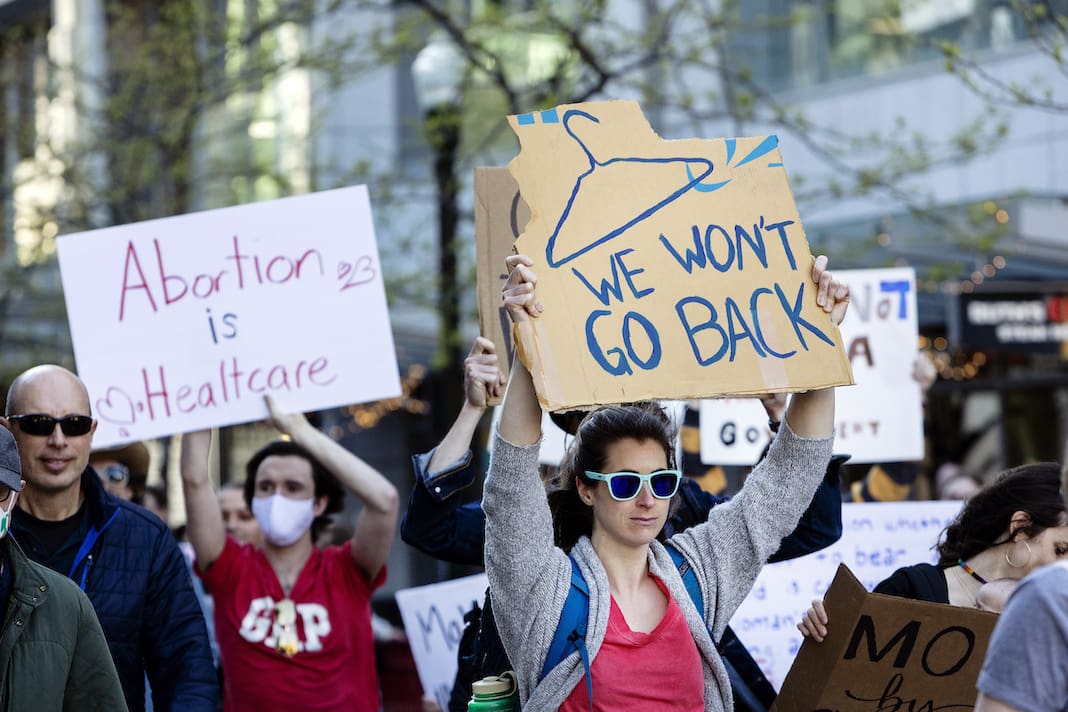Conservative states fight to undermine Planned Parenthood yet again
A group of Republican attorneys general is asking the Supreme Court to block low-income patients from health care providers if they offer abortions.

Attorneys general from 19 states, led by Indiana Attorney General Curtis Hill, are asking the U.S. Supreme Court to allow states to block health care providers who offer abortion from being Medicaid providers. This move represents the latest attack to undermine and defund abortion providers, even when they are providing much-needed health care.
It has long been a goal of anti-abortion activists to cut health care providers that perform abortions off from any public funding. The Hyde Amendment already prohibits the use of federal Medicaid funding for abortions, even in instances when a doctor recommends the patient do so.
Additionally, last year, the Trump administration imposed the so-called “domestic gag rule,” which prohibits clinics that perform abortions from receiving any Title X funds. Title X is a government program that was signed into law under President Richard Nixon, which provides federal money for family planning services, including birth control and sexual health screenings, for people with low incomes.
That gag rule forced Planned Parenthood out of the Title X program entirely, even though Planned Parenthood was serving over 40% of the 3.8 million people served under the program. A 2017 study by the Guttmacher Institute, which studies reproductive health policy, found that the removal of Planned Parenthood from Title X funding would require other health care providers to absorb nearly two million contraceptive clients.
Though Planned Parenthood and other abortion providers have seen their funding for services severely curtailed, they still can receive Medicaid reimbursement, rather than Title X funding, for non-abortion services, such as cancer screenings, contraception, and STI testing.
Were Indiana’s position to succeed, individual states could block Planned Parenthood from being a Medicaid provider. If that happens, Planned Parenthood could no longer provide vital medical services to people with low incomes, who may not have other places to receive that health care.
A significant portion of Planned Parenthood’s patients rely on Medicaid for their medical care. In Ohio, where Republican Gov. Mike DeWine cut Medicaid funding earlier this month — in the middle of a pandemic — approximately 40% of Planned Parenthood patients rely on Medicaid.
Attacks on federal funding for health care are just one part of a recent campaign attacking abortion providers. The GOP kicked off the year launching a campaign vilifying people seeking later abortions with so-called “born-alive” bills, legislation Republicans say is necessary to require doctors to provide medical care to infants alleged born during abortion procedures.
However, as Wyoming’s anti-abortion Republican governor, Mark Gordon, noted when vetoing one such bill, “Laws already in place protect children from being denied lifesaving care.” The bills do, however, have the effect of stigmatizing people who need abortions later in pregnancy for a variety of reasons by implying they might be immoral and unlawful.
Besides trying to pass some of the most restrictive abortion bans on record in the past year, Republicans are also using the COVID-19 pandemic to try to cut off access to abortion care during a difficult and confusing time.
Over 50% of Planned Parenthood locations are in rural or medically underserved areas. Conservative legislators have already taken away Medicaid funds for abortions and Title X funding for family planning. If they succeed in taking away Medicaid funds for non-abortion services such as breast exams, it could leave many people with literally nowhere to turn.
Published with permission of The American Independent Foundation.
Recommended

Ohio doctors fear effects of emergency abortion care case set to go before U.S. Supreme Court
A federal law that allows emergency departments to treat patients without regard to their ability to pay will be under U.S. Supreme Court scrutiny this week, and Ohio doctors are concerned about the case’s local impact on emergency abortion care.
By Susan Tebben, Ohio Capital Journal - April 23, 2024
Biden on abortion rights: President expects to give speech Tuesday on new Florida 6-week ban
‘Having the president of the United States speaking out loud and with confidence about abortion access is a great thing’
By Mitch Perry, Florida Phoenix - April 22, 2024
Group launches effort to explore ballot initiative restoring abortion access in Idaho
Organizers say fundraising begins now for inclusion on the 2026 ballot
By Kelcie Moseley-Morris, Idaho Capital Sun - April 19, 2024







































































